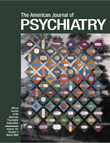Delirium After Ingestion of Mentholatum
Ms. A, a 63-year-old resident of a nursing home with a past history of alcoholism and ongoing nicotine dependence, was hospitalized on three occasions in a 1-year period secondary to confusional episodes. These episodes were found to be temporally related to the oral ingestion of Mentholatum, a topical analgesic. Ms. A had apparently been using Mentholatum as a mood-altering substance for up to 5 years. Family members and nursing home staff witnessed spontaneous incidents of Mentholatum ingestion followed by sudden episodes of euphoria, confusion, lethargy, agitation, odd behavior, and auditory and visual hallucinations.The hospital’s psychiatry group was consulted on her third admission, when Ms. A’s symptoms had partially cleared but she continued to demonstrate confusion about the reasons for her hospitalization, impaired concentration, deficits in recent and remote memory, confabulation, lack of insight, and poor judgment. The results of neuropsychological testing revealed borderline intellectual functioning, confirmed significant memory impairment along with confabulated responses, and demonstrated deficits in visuospatial skills.A physical examination was remarkable for an erythematous, edematous, and fissured tongue and generalized muscular atrophy. Respiratory findings were consistent with chronic obstructive pulmonary disease, lipid pneumonia, and mild hypoxemia. The results of a neurological examination revealed muscle fasciculations, tremors, a positive Romberg’s sign, poor coordination, nystagmus, and decreased deep tendon reflexes. Mild dilation of the lateral and third ventricles and mild central cerebral atrophy were evident on computerized tomography of the brain.Ms. A’s hospital courses typically demonstrated decreasing confusion, improved but persisting recent memory deficits with mild confabulatory tendencies, and stable impairment in remote memory. The overall improvement in her status and the absence of any episodes of delirium during each hospitalization were presumed to be a result of the hospital-imposed cessation of Mentholatum ingestion.
References
Information & Authors
Information
Published In
History
Authors
Metrics & Citations
Metrics
Citations
Export Citations
If you have the appropriate software installed, you can download article citation data to the citation manager of your choice. Simply select your manager software from the list below and click Download.
For more information or tips please see 'Downloading to a citation manager' in the Help menu.
There are no citations for this item
View Options
View options
PDF/ePub
View PDF/ePubGet Access
Login options
Already a subscriber? Access your subscription through your login credentials or your institution for full access to this article.
Personal login Institutional Login Open Athens loginNot a subscriber?
PsychiatryOnline subscription options offer access to the DSM-5-TR® library, books, journals, CME, and patient resources. This all-in-one virtual library provides psychiatrists and mental health professionals with key resources for diagnosis, treatment, research, and professional development.
Need more help? PsychiatryOnline Customer Service may be reached by emailing [email protected] or by calling 800-368-5777 (in the U.S.) or 703-907-7322 (outside the U.S.).

